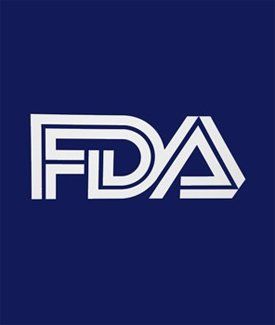FDA Approves Gemtuzumab Ozogamicin for Acute Myeloid Leukemia
The FDA has approved gemtuzumab ozogamicin (Mylotarg) for the first-line treatment of adults with CD33-positive AML and for pediatric patients with relapsed or refractory CD33-positive AML.
The approval includes both adult and pediatric patients

The US Food and Drug Administration (FDA) has approved gemtuzumab ozogamicin (Mylotarg) for the first-line treatment of adults with CD33-positive acute myeloid leukemia (AML), and in pediatric patients, 2 years of age and older, with relapsed or refractory CD33-positive AML. Up to 90% of AML patients are positive for CD33.This marks the first approval for pediatric AML.
“Today is an important day for patients, their families, and the entire AML community, as the approval of Mylotarg brings forth a long-awaited treatment option that may lead to deeper, more durable remissions for patients with AML,” said Jorge Cortes, MD, of the University of Texas MD Anderson Cancer Center in Houston, in a press release. “After many years, we are finally seeing progress in the treatment of AML, which has renewed my hope in improving outcomes for my patients. I am pleased that I can now offer many adult and pediatric patients targeted treatment with Mylotarg.”
The approval of gemtuzumab ozogamicin is based on a number of clinical trials, including AML-19, MyloFrance-1, and ALFA-0701.
AML-19
This randomized, open-label, phase III trial compared single-agent gemtuzumab ozogamicin (n = 118) vs best supportive care (n = 119) in elderly patients who could not tolerate other AML therapies. On day 1 of initial treatment, patients in the experimental arm received 6-mg/m2 gemtuzumab ozogamicin, then 3-mg/m2 gemtuzumab ozogamicin on day 8. If patients showed no evidence of progressive disease, they received 2-mg/m2 gemtuzumab ozogamicin every 4 weeks as continued treatment. Patients treated with gemtuzumab ozogamicin had a median overall survival of 4.9 months compared with 3.6 months among those receiving best supportive care, for a hazard ratio (HR) of 0.69 (95% CI, 0.53–0.90; 2-sided P = .005).
MyloFrance-1
This phase II trial included adult AML patients in first relapse. All 57 patients were treated with single-agent gemtuzumab ozogamicin on days 1, 4, and 7 at a dose of 3 mg/m2. The trial reported a complete remission rate of 26% (15 patients); median relapse-free survival was 11.6 months.
ALFA-0701
This phase III open-label trial studied gemtuzumab ozogamicin in newly diagnosed de novo AML. Patients were randomized 1:1 to either chemotherapy alone (n = 136) or chemotherapy plus gemtuzumab ozogamicin (n = 135) at a lower fractionated dose of 3 mg/m2 on days 1, 4 and 7. Patients who received gemtuzumab ozogamicin had an event-free survival of 17.3 months compared with 9.5 months among patients receiving chemotherapy alone (HR, 0.56; 95% CI, 0.42–0.76).
First Approval
In 2000, Mylotarg received accelerated approval as a treatment for older CD33-positive AML patients in first relapse, but the agent was voluntarily withdrawn from the market after confirmatory trials failed to verify its benefit while also demonstrating safety concerns, including a high number of early patient deaths. The new approval includes both a lower recommended dose and a different treatment schedule than the original approval.
“We are approving Mylotarg after a careful review of the new dosing regimen, which has shown that the benefits of this treatment outweigh the risk,” said Richard Pazdur, MD, director of the FDA’s Oncology Center of Excellence and acting director of the Office of Hematology and Oncology Products in the FDA’s Center for Drug Evaluation and Research, in a press release. “Mylotarg’s history underscores the importance of examining alternative dosing, scheduling, and administration of therapies for patients with cancer, especially in those who may be most vulnerable to the side effects of treatment.”
Safety
The most common adverse events (AEs) related to gemtuzumab ozogamicin include constipation, elevated liver function tests, headache, hemorrhage, infection, nausea, neutropenia, pyrexia, rash, stomatitis, thrombocytopenia, and vomiting. Serious AEs include hepatic veno-occlusive disease, infections, infusion-related reactions, liver damage, low blood counts, and severe bleeding.
Pregnant or breastfeeding women are advised not to take gemtuzumab ozogamicin due to risks to the fetus or baby.
The FDA has included a boxed warning for hepatotoxicity, including severe or fatal hepatic veno-occlusive disease, which has been reported in 5% of patients treated with either gemtuzumab ozogamicin alone or with chemotherapy.